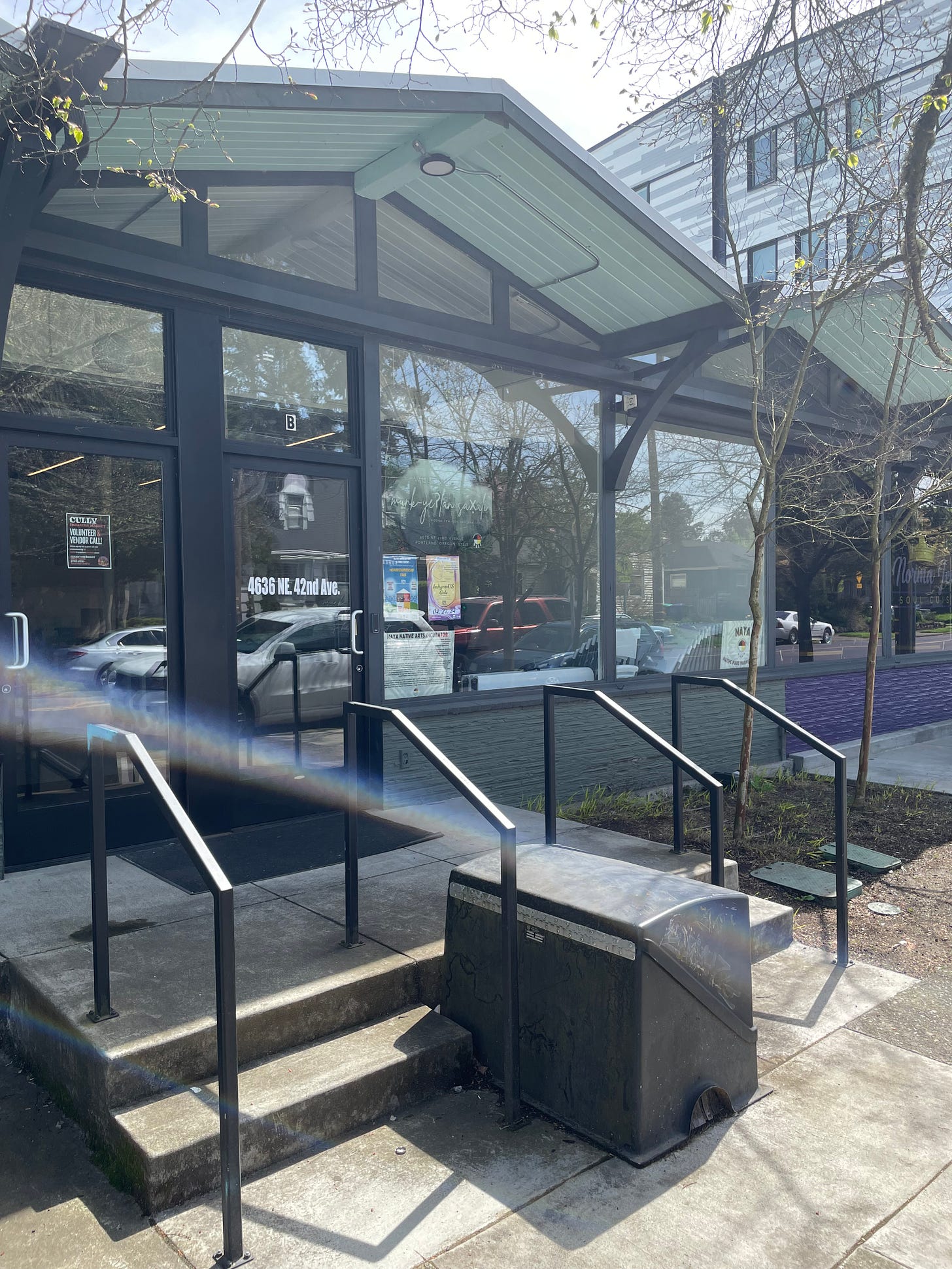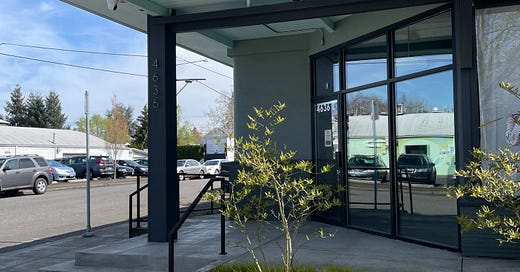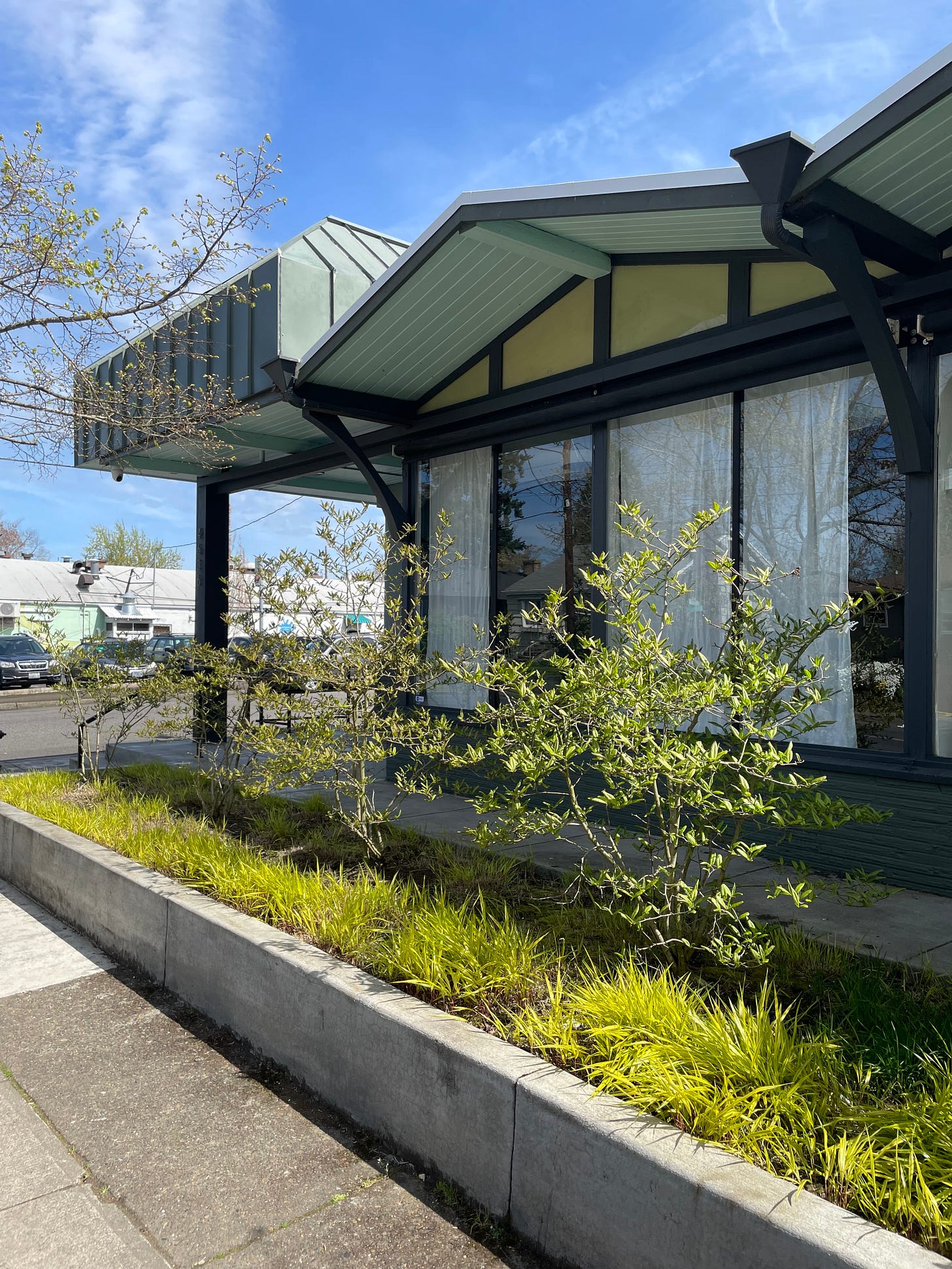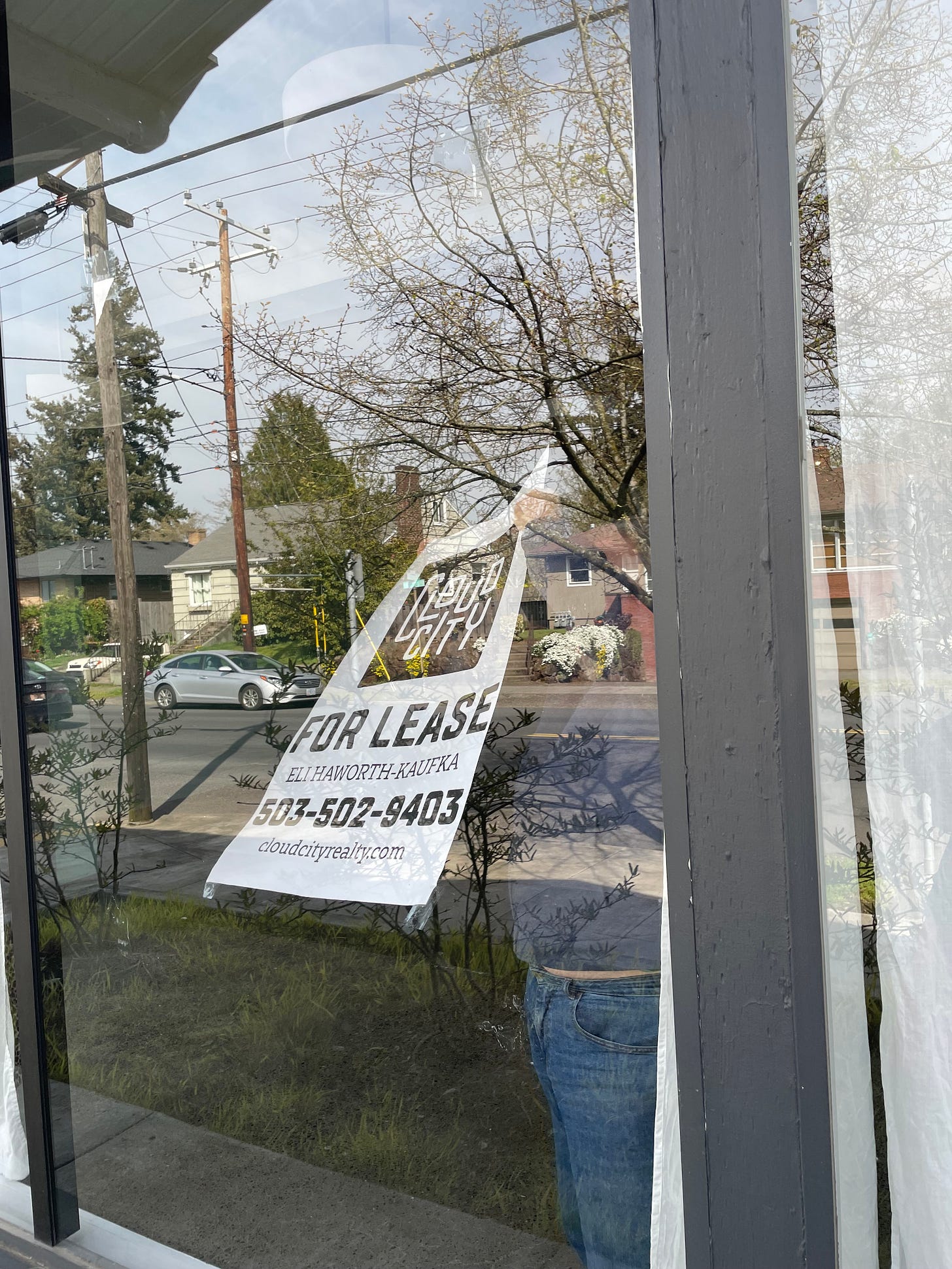Wow, there’s a lot going on around here.
The big news is that we’re moving our school, POCA Tech. Last Thursday, April 11, we signed a ten year lease for a space on 42nd Ave. that can serve as both our classroom and student clinic, as well as a hub for 5NP organizing. There’s a good story behind how we found this particular space, which won’t fit here (but maybe in a future post). In this post I want to talk about two things:
1) how we’re going to use the move itself to teach entrepreneurship, because this is a big leap for our little school — and thus a priceless educational opportunity for students;
and
2) why we hope this is the foundation for exploring a new model for acupuncture education, which is sorely needed.
But first, a quick recap of the wayfinding that got us here, both because we have a bunch of new subscribers (hi! welcome! thank you!) and also because retracing our steps is always a good exercise for me. It helps me identify patterns that I can only see in hindsight. (If you’re new here, you might want to read this post about why we built an acupuncture school on a shoestring.)
WCA had an interesting, maybe unusual, pandemic experience. COVID gave us the opportunity for a hard reset. We wouldn’t have chosen it, but we made good use of it. Also we made some new friends: the Native American Youth and Family Center (NAYA), whose staff were energetically trying to save all the small businesses in our neighborhood via their community economic development arm, and through them the NAYA Action Fund and social impact consultant Camille Trummer.
We invested some of our pandemic rescue funding into coaching with Camille to help us work on strategic partnerships with other organizations. WCA already had several organizational partnerships (CODA and CareOregon), but we needed a big-picture perspective on how to develop partnerships in general, in order to cultivate WCA’s long term sustainability. WCA’s closest and most demanding partnership is with our own acupuncture school. POCA Tech and WCA are tangled around each other in all kinds of ways. And as we learned to think about partnerships in a more detailed, intentional, and systematic way (thanks Camille!) it became clear that the school needed room to grow.
Making an acupuncture school from scratch is a LOT. The original funding for POCA Tech came primarily through grassroots fundraising with other community acupuncture clinics (all small businesses themselves) in the POCA Cooperative, hence the name. Between 2012 and 2014, we collectively raised about $200K to open a school dedicated to teaching community acupuncturists. About $65,000 of that was earmarked for the process of becoming accredited, so there wasn’t a lot of money to spend on facilities. Since 2014, POCA Tech’s classroom has been in shared spaces with other nonprofits, most recently the Rose City Community Collective. POCA Tech’s clinic internships have been provided by WCA and other community acupuncture clinics (currently Wasatch Community Acupuncture, Ashland Community Acupuncture, Acupuncture for the People, and Quad Cities Community Acupuncture.)
POCA Tech has never had either a classroom or a clinic that wasn’t shared with another organization. Last fall, we realized that needed to change because we needed not only more space but our own space. Actually making it happen is a big, scary, entrepreneurial leap, and also a veritable fountain of teachable moments! I’m going to unpack as many of them as I can in this newsletter, now that the news is public. We’ve already started discussing them in class with students. It’s one thing to talk about how to make a new community acupuncture clinic, but it’s a whole other level to make one together.
POCA Tech interns already spend a lot more time learning hands-on clinic management skills than most acupuncture student interns do, but having our own facility represents a whole new level of responsibility. We’re growing up! We’re going to clean our own bathrooms and pore over our own P&Ls! We’ll continue to have student internships with WCA and our Away Clinic partners, but POCA Tech’s primary clinic will be run by POCA Tech students. We can finally have our own sign!
And even better, our new clinic and classroom space is in a vibrant, walkable neighborhood, right next door to NAYA’s new community economic development office and hub for NAYA’s prosperity programs: munk-yeʔlan sax̣ali, [moonk-YEH-lǔn SAH-hah-lee]. This is the most small-business-positive, partnership-oriented location that I could imagine for POCA Tech, and I’ve never felt so welcomed into a new space.

The first treatments we’ll offer in the new space will be free 5NP clinics, in partnership with NAYA Action Fund. We’re aiming for July, which is when our tenant improvement work will be done (fingers crossed).
On a less upbeat note, we know that a shiny new facility has been the undoing of more than one acupuncture school. (Anybody else remember the Northwest Institute of Acupuncture and OM? No?) Bad news for the field of acupuncture education keeps coming; meanwhile POCA Tech just signed its first ten year lease. Out of step as usual!
POCA Tech’s new incarnation still won’t look like other acupuncture schools (stay tuned for a photo tour of all 1900 square feet). We’re still on a shoestring budget relative to other schools, and we still aren’t taking student loans. We just have more space to be our (organizational) self. That self is still weird, and arguably getting weirder as we grow. Also more visible, which we need to be. We’re experimenting in public, working out a template that could be replicated (if someone wanted to replicate an acupuncture school that didn’t rely on student loans): a free-standing, self-sustaining organization that thrives within a web of organizational partnerships.
In my experience, a core aspect of entrepreneurship is accepting that nobody’s going to give you the thing that you want, so you’re going to have to make it. If your resources are limited, you’ll probably have to make it in small increments, punctuated every so often by big leaps of faith. It’s a process of continually finding the edge of what’s possible and nudging it — and then occasionally stepping off the edge right into space. A leap of faith isn’t how I expected to celebrate POCA Tech’s ten year anniversary, but the best things about community acupuncture haven’t been things I expected. Stay tuned for teachable moments.






